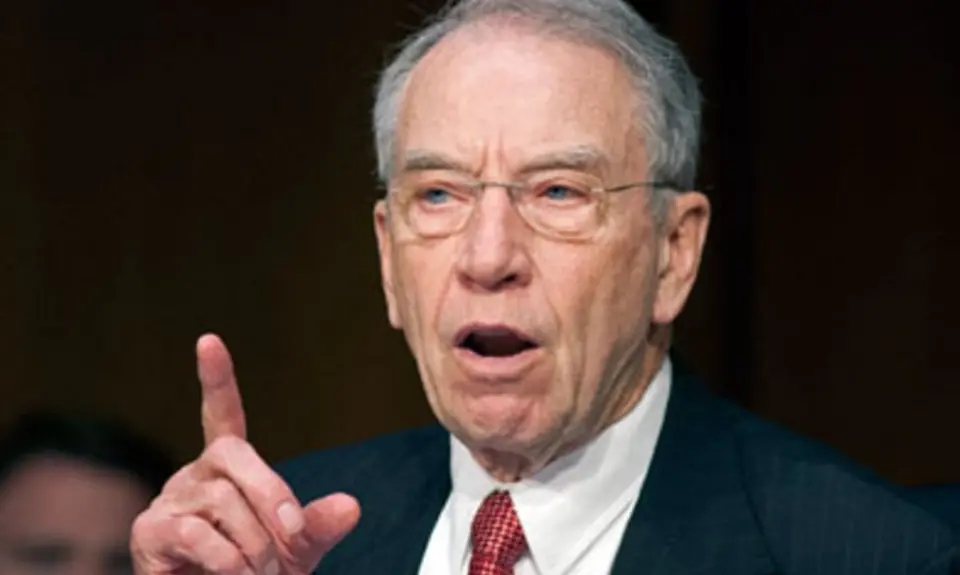Senate Judiciary Committee Chairman Chuck Grassley has an op-ed out in The Daily Signal called 7 Facts Democrats Should Consider Before They Oppose Neil Gorsuch. Unfortunately for Grassley, all seven are easily shown to be either irrelevant or untrue.
Grassley’s "Fact" 1: There has never been a successful partisan filibuster of a Supreme Court nominee.
Response: There’s a reason that Grassley inserted the word “partisan” there. It’s to hide the fact that as far back as the 1960s, a bipartisan Senate voted not to hold a confirmation vote for Abe Fortas when he was nominated to be Chief Justice of the United States. Adding qualifiers only serves to obscure relevant history.
Grassley’s "Fact" 2: A number of Democrats were in the Senate in 2006 and joined in the unanimous vote for Gorsuch’s confirmation to the Tenth Circuit.
Response: First, confirming a circuit court nominee who will have to follow Supreme Court precedent is a far cry from confirming a justice with the power to create and destroy precedent. Second, the overwhelming opposition to Gorsuch is based on his record in the position he was confirmed to in 2006. So how could anyone honestly believe that supporting him in 2006 is in the least bit relevant?
Grassley’s fact 3: The ABA found Gorsuch “well qualified.”
Response: As the ABA makes clear, its analysis of any judicial nominee has nothing to do with their ideology. No one has ever disputed that Gorsuch is a smart and experienced person. It’s how he has applied his intelligence to misinterpret laws to favor the powerful that has raised concern. Also remember that Merrick Garland also got a unanimously well qualified rating from the ABA, and we see how far that got him with Grassley.
Grassley’s "Fact" 4: Chuck Schumer said he’d block any Trump nominee. Grassley cites two statements made before the nomination.
Response: In both cases, Schumer said that he could not imagine Trump nominating anyone who wasn’t an extremist, so he was willing to block a hypothetical nominee of the type who appeared on the list handed to Trump by the right-wing Federalist Society and Heritage Foundation.
Grassley’s "Fact" 5: President Bill Clinton’s and President Barack Obama’s first two nominees were each confirmed without needing 60 votes.
Response: Hmmm, why didn’t Grassley just say “Clinton's and Obama’s nominees,” instead of “first two nominees?” Could it possibly be because Grassley himself ensured that Merrick Garland would not get a floor vote by not even giving him a hearing? Or are we supposed to pretend that never happened? In any event, each one of those four nominees earned more than 60 votes for confirmation.
Grassley’s "Fact" 6: The Washington Post gave Schumer’s statements about a 60-vote standard “two Pinocchios.” Sixty votes isn’t “a standard” since two of the current justices on the Court didn’t meet it.
Response: First, Grassley is taking his marching orders from a president who is regularly called out for his blatant lies, so he isn’t one to criticize Schumer for getting a mild “two Pinocchios.” More importantly, Grassley is presumably citing the confirmation votes of Clarence Thomas (52-48) and Samuel Alito (58-42) to somehow prove that no 60-vote standard exists. But a standard is just that: a standard. It isn’t an inflexible rule that can never be waived under appropriate circumstances. In Alito’s case, the Senate voted 72-25 to hold a confirmation vote. In Thomas’s case, the Senate chose to proceed to a vote without holding a preliminary vote. (It’s also worth noting that Alito and Thomas are generally considered to be the most extreme far-right justices currently on the bench. That kind of extremism is the last thing the Court needs more of.)
Grassley’s "Fact" 7: Same as fact 6, but in the context of Bernie Sanders’ rather than Chuck Schumer’s reference to a 60-vote standard.
Response: See above.
Grassley’s “7 Facts” don’t hold up to scrutiny. The accurate and important fact is this: Judge Gorsuch’s record on the bench and at his confirmation hearing make clear that he should not be allowed to become a Supreme Court justice.
